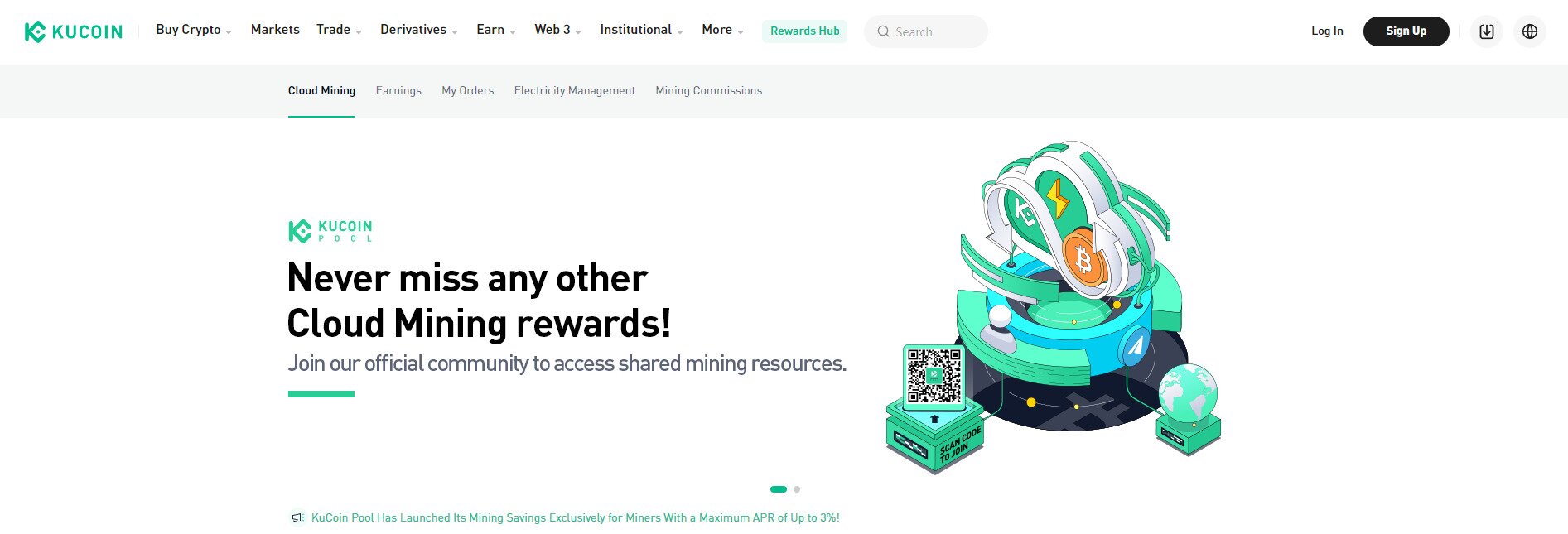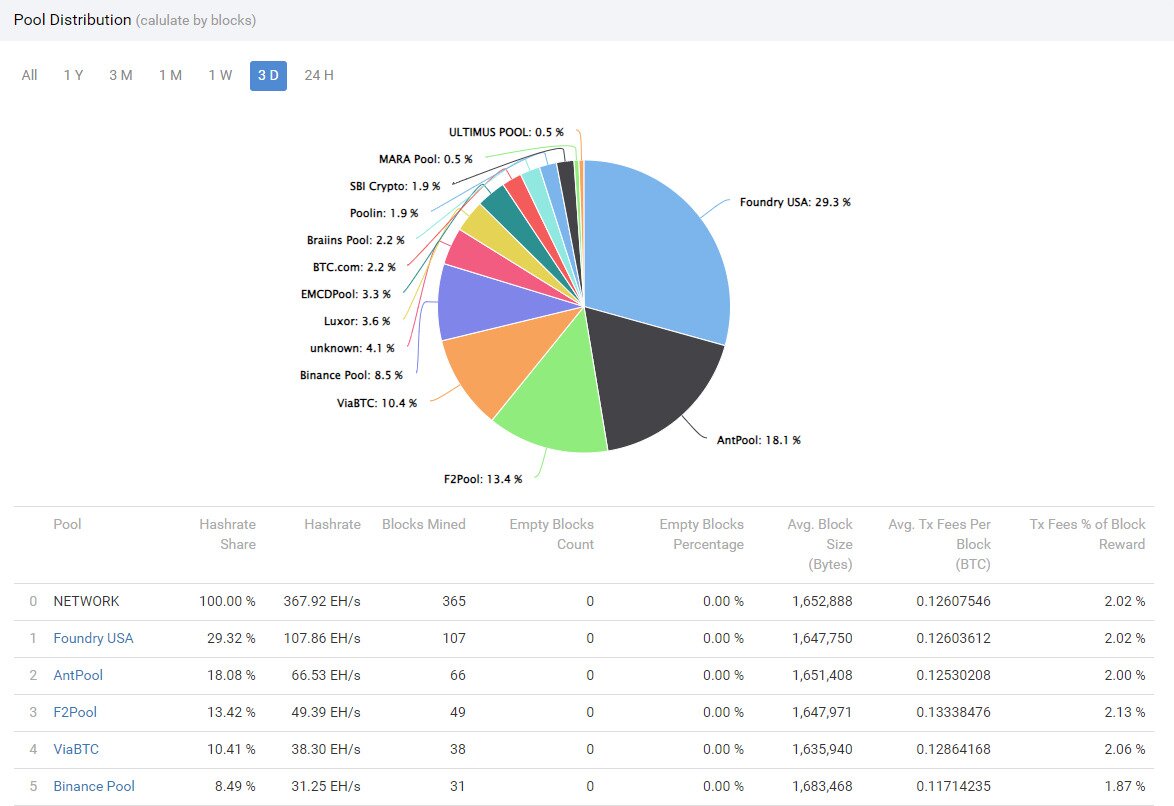What is Bitcoin Mining?
Cryptocurrency mining is the process of adding blocks to a blockchain. Whichever miner creates the next block receives newly minted digital assets as a reward. This is called a block reward.
A Bitcoin miner has two jobs. The first of which is to get the answer to a complex mathematical puzzle. The second is to construct a block that consists of the transactions that took place during since the previous block. Whoever solves the math problem first gets to construct the new blocks.
A successful Bitcoin mining operation requires specialized mining hardware with lots of processing power, access to a low cost of electricity, mining software, and an unwavering connection to the Bitcoin blockchain network. The more miners there are mining Bitcoin, the more the mining difficulty increases, which means you need more computing power to compete with other miners, especially if they’re a mining pool.
When a miner solves a particular problem, they get to validate Bitcoin transactions and add them as the new Bitcoin block. The mining operation that solves the block receives all the transaction fees from it, in addition to the new Bitcoin emitted as the block reward
What Are the Various Ways to Mine Bitcoin at Home?
There are three main ways you can participate in Bitcoin mining at home. The first way you can mine Bitcoin is as individual miners, where you set up mining software and mine Bitcoin yourself, using your own specialized computer hardware, and compete against other miners. Unless you put in a significant investment into GPU mining rig equipment or similar specialized mining hardware, it will be hard to make Bitcoin mining work at an individual level like this.
You can also join a mining pool, whether a cloud service or traditional mining pool, both of which are more likely to let you be successful at mining Bitcoin. We’ll discuss how to mine bitcoin at home with cloud and mining pool options shortly
How to Set Up Bitcoin Mining at Home
To begin mining Bitcoin at home, you will need four main components. They are: mining equipment, mining software, a source of electricity, and a reliable internet connection. Apart from learning how to mine Bitcoin, you’ll need these 4 components to get started:
Mining Rig Equipment
Mining Bitcoin requires a Graphic Processing Unit (GPU) or Application-Specific Integrated Circuits (ASIC) mining rig. GPU mining rigs must have a fast hash rate (processing power) and be efficient for cost of electricity. ASICs are specialized equipment and devices that are designed specifically for efficiently mining crypto. The prices mining hardware like this starts at a few hundred USD, but can easily run into thousands of dollars.
Mining Software
In order to start mining Bitcoin, you’ll need to download mining software that connects to the Bitcoin network. Even if you’re joining a mining pool, you’ll need to download mining software to your computer’s operating system to start mining.
Electricity
Mining Bitcoin profitably requires a cheap and reliable source of electricity to power the aforementioned mining rigs. Countries that have cheap electricity are the most attractive for crypto miners. The cheaper the electricity costs, the better the profit margins for miners.
Internet connection
Bitcoin miners have to be connected to the Internet for the entirety of the mining process. Interruptions in their Internet connection can cause setbacks during the mining process and subsequently cost the miner their rewards.
How to Mine Bitcoin At Home as an Individual
To start your own Bitcoin mining at home, all you need to do is acquire all the above components. You then have to set it all up, and keep track of your electricity prices to figure our your profitability.
However, small miners, such as home miners, are unlikely to be profitable, especially when competing against mining pools and cloud services, both of which are likely to have significant investment into equipment that you cannot make.
What Are the Alternatives to Mining Bitcoin?
If you’re interested in getting into Bitcoin/crypto mining but don’t want to waste money trying to be a solo miner who is statistically unlikely to ever earn a reward, you have two main options. The first option is cloud mining, and the second is mining pools. Each is described below.
Cloud Mining
Cloud mining is essentially outsourcing the work involved in Bitcoin mining. The hardware, electricity, and maintenance of the crypto mining rigs/equipment is all done by a provider. In exchange for doing this, the provider is paid a commission/fee by you and everyone else using the cloud service. With cloud services, you’re renting a portion of a large pool of computational power.
It can be a profitable alternative to solo mining, but there are upfront costs involved. You have to pay for the service in advance, and the aforementioned fee or commission taken from your profit. Ideally, a cloud service company will improve their hardware frequently to continuously improve profitability. Despite these upfront costs, using a reputable cloud service is almost certainly more profitable than trying to mine solo, barring an enormous investment in equipment and electricity by yourself.
There are a large number of cloud mining scams, however, so make sure you use a reputable company if you go this direction.
Mining Pool
Mining pools are similar to cloud pool services, but rather than renting equipment from someone else, you pool your own equipment with others’. By combining your computing power with others, you increase your collective hash rate and your chances of solving the block and earning the reward. A mining pool splits the profits proportionally among pool members, with the pool creator often charging some sort of fee/commission for running the pool.
Mining pools are a profitable alternative to solo mining, but they require a similar upfront cost to cloud, as you do need to provide your own mining equipment and pay for your own cost of electricity.
Bitcoin Mining FAQ
It’s not likely to be profitable mining Bitcoin at home unless you’re part of a mining pool.
Yes, as long as you have the right equipment, but it’s unlikely to be profitable.
Crypto mining can be done for any proof of work crypto asset such as Dogecoin (DOGE), Bitcoin Cash (BCH), and Litecoin (LTC).
No, a smart phone doesn’t have enough computing power to compete at mining Bitcoin.
Yes, it can easily be done if you join a mining pool or pay for a cloud service.










